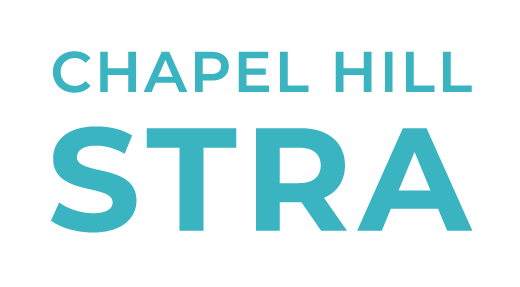A quick overview of why we’re here.
Planning Department and Town Council
In a committee meeting on June 7 and a council meeting on June 19, the Planning Department made presentations to the council on the current state of short-term rentals in Chapel Hill. The presentations were a result of the department receiving “three to four” complaints about STRs, and upon an investigation of zoning codes, they realized the current regulations do not account for today’s STR landscape.
View the entire presentation here:
In the June 19 meeting, the council agreed to consider regulations but not enforce the current rules during the ordinance development process (with the exception of noise, parking, and trash complaints already covered by nuisance ordinances).
CHALT/Chamber/Hotelier Petition
Ahead of the June 19 meeting, CHALT, the Chamber for a Greater Chapel Hill-Carrboro and a group of local hoteliers submitted a petition calling for strict limitations on whole-home rentals and a ban on dedicated vacation rentals. We encourage all members to read the petition in full here.
As a quick summary, the petition suggests redefining short-term rental properties and imposing strict limitations/bans as follows:
- “Dedicated Vacation Rental” – No primary occupants. Also known as a “Whole House” rental of a dwelling unit that is not the host’s primary residence. In this arrangement, the entire dwelling unit–often a “second” home or permanent rental property– is rented while the host is away from the property.
- “Dedicated Vacation Rentals” should not be allowed in any part of Chapel Hill.
- “Unhosted Rentals” – Primary occupants vacate the unit while it is rented to short- term guests. Also known as a “Whole House” rental of the host’s primary residence. In this arrangement, the entire dwelling unit is effectively the host’s primary residence and the host is away from the property while it is used as a short-term rental.
- “Unhosted Rentals” should have a limit on the number of nights in which the unit is rented while the primary resident is away (e.g., no more than 14 nights).
- “Hosted Rentals” – Primary occupant of a residence remains on-site with guests. Also known as “Homestay” rental.
- “Hosted Rentals” should be subject to TBD requirements, such as occupancy limits and/or limits on the number of nights.
The petition further argues against STRs on several misleading claims regarding affordable housing, safety, job creation, and other misconceptions. We have addressed many of these and more on our Get to Know STRs page, which we encourage all members to read.
What Happens Next
The Planning Department is developing a six- to nine-month public engagement process to tentatively start at the end of August. This will include the creation of a task force with representatives from various stakeholder groups to advise the regulatory goals and provisions. The Chapel Hill STRA has volunteered for this task force.
This process will also include surveys, both from the Planning Department and from the Chapel Hill STRA for our members.
After the public input process, the Planning Department would then draft a new ordinance for town council consideration. Such a proposal would occur in 2020. If approved, a three- to six-month education and enforcement period would follow.
State Preemption Bill
While all of the above is going on, the NC Legislature is also bouncing around a state preemption bill that would bar local municipalities from prohibiting STRs.
Read the bill summary here:
An excerpt from the summary:
Section 1 of the PCS to Senate Bill 118 would authorize counties and cities to enforce existing ordinances regulating short-term residential rental property that were adopted on or before June 30, 2019. After June 30, 2019, counties and cities would be authorized to amend existing short-term residential rental ordinances or to adopt new short-term residential ordinances provided the amended ordinance, or the new ordinance, does not do any of the following:
- Prohibit rentals, impose occupancy restrictions, or regulate rental frequency or duration.
- Require licensing or registration of rentals or their owners.
- Require inspections of rentals, except those for hazardous or unlawful conditions.
- Regulate or require licensing or registration of a landlord’s real estate broker except as required by the North Carolina Real Estate Commission.
The PCS would require local governments to treat a residential vacation rental or a long-term residential rental as residential property for purposes of zoning regulations applicable to land use regulations.
What this means for Chapel Hill
If the bill passes in its current state, the town of Chapel Hill’s ability to regulate short-term rentals would be limited mostly to safety requirements. It is unlikely this bill will be considered or passed this legislative season but is anticipated to be brought back to the table in 2020.
Note: There is another senate bill 118 currently in the house rules committee, but it is unrelated.
What You Can Do
Right now, our primary objective is to grow our membership, but we also want you to be able to take full advantage of the organization right away. Here are some things you can do next:
Contact us any time at ChapelHillSTRA@gmail.com.

